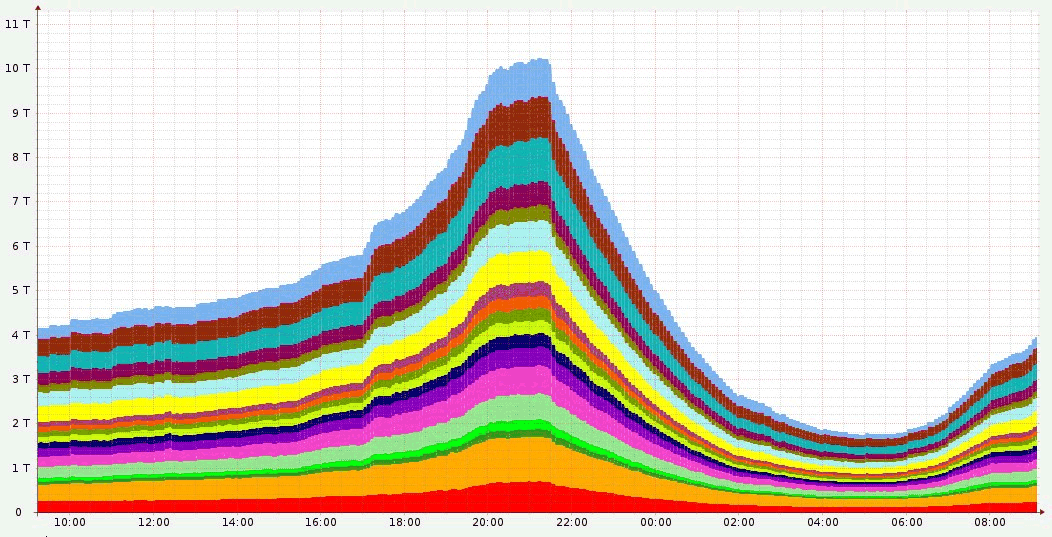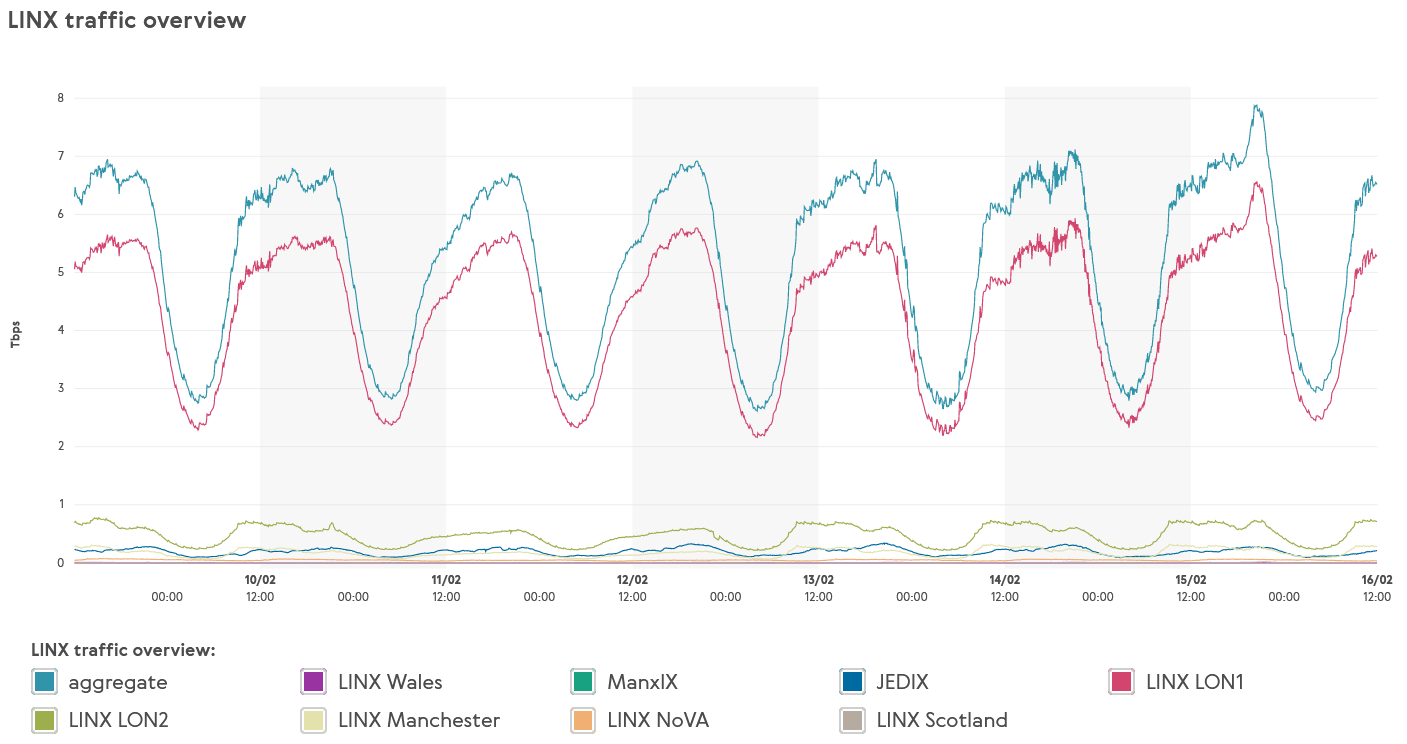LINX and UK Broadband ISPs See Huge 15th Feb Traffic Surge UPDATE2

Internet traffic across UK broadband ISPs surged to a new peak on Wednesday night (15th Feb 2023), with customers of TalkTalk setting a new record of 10.25Tbps (Terabits per second), while Virgin Media hit 24.77Tbps, BT topped 29.11Tbps and the London Internet Exchange (LINX) reached a peak of around 7.87Tbps.
In both cases, the records were set at between 8pm and 10pm. All of this was being fuelled by the 6pm release for Season 2 of the popular ‘Call of Duty‘ video game (file size 22GB), not to mention Amazon (Prime Video) streaming a match between top-of-the-table Arsenal and Manchester City, which was also followed by other matches, such as Chelsea’s 1-0 defeat to Borussia Dortmund in the Champions League.

Phil Haslam, TalkTalk’s CTO, said: “Our network forecasting team is continually looking ahead to ensure we have the right capacity and resilience across the network to exceed our customers’ demand to download or stream. And last night was no different – the growth of our network over our 20-year history has been huge and shows the demand for connectivity has never been higher.”
Advertisement
A similar surge was witnessed by other ISPs and can also be seen by viewing yesterday’s aggregated traffic data from LINX, which handles a key chunk of UK and global data traffic through their switches via around a thousand members (broadband ISPs, mobile operators etc.).
LINX does not provide a complete overview of the internet traffic flow from all ISPs, but they do give a useful indication of how much extra traffic is flowing around when compared with normal conditions.

Broadband and mobile providers use sophisticated Content Delivery Networks (CDN) and systems to help manage the load from such events, which caches popular content closer in the network to end-users (i.e. improves performance without adding network strain). This in turn lowers the provider’s impact on external links and helps to keep costs down.
Advertisement
Nevertheless, demand for data is constantly rising and broadband connections are forever getting faster, thus new peaks of usage are being set all the time by every ISP. Ofcom’s Connected Nations 2022 study noted that the average monthly data volume per household on fixed broadband connections increased over the past year to 482 GigaBytes (up by just 6.4%).
UPDATE 2:37pm
We’ve had an update from Virgin Media (VMO2), which saw its broadband network hit 24.77Tbps at its peak (8-10pm average) – that was a 10% increase on the previous record-breaking day, which occurred on Wednesday 19th October 2022.
UPDATE 17th Feb 2023 @ 7:11am
Advertisement
BT’s Chief Security and Networks Officer, Howard Watson, posted on LinkedIn to confirm that their network also carried a new record peak for broadband traffic of 29.11Tbps (more than 10% higher than the previous peak a few months ago).
Mark is a professional technology writer, IT consultant and computer engineer from Dorset (England), he also founded ISPreview in 1999 and enjoys analysing the latest telecoms and broadband developments. Find me on X (Twitter), Mastodon, Facebook, BlueSky, Threads.net and Linkedin.
« BT Launch National UK Roaming SIMs for Business IoT Smart Devices






















































Interesting graph from TalkTalk – I wonder what the colours represent?
Likely to be BNG aggregation locations.
Have people nothing better to do than playing mindless online games?
Please like you are curing world hunger in your free time
I know, right? They could be on here complaining that broadband isn’t symmetrical and obsessing over Trustpilot reviews instead.
Mine is symmetrical and my ISP’s Trust Pilot is boring – what else?
Found the boomer.
Well, it ain’t long before we are dragged into WW3 so let the genz temporarily enjoy their spare time, soon it’ll be into the trenches. And the depopulation will begin and the “great reset”.
I believe that there was an informal agreement between the ISPs and game developers that the latter would avoid Champions League nights for major game updates to help smooth traffic loads. Not sure if that has fallen away now?
They’re normally global releases. Delay it and you cause American isps issues.
LONAP also surpassed 1Tbit/sec for the first time that evening.
https://twitter.com/LONAP/status/1626529296247320577